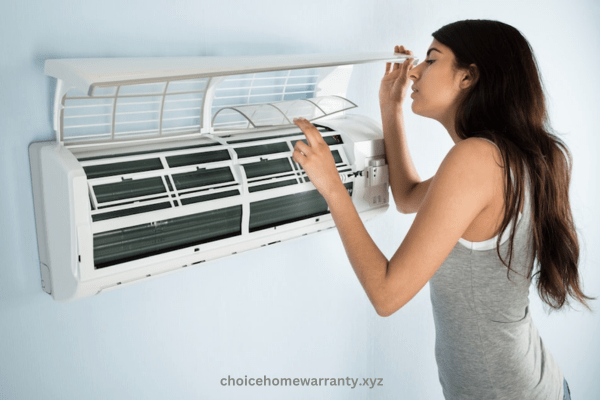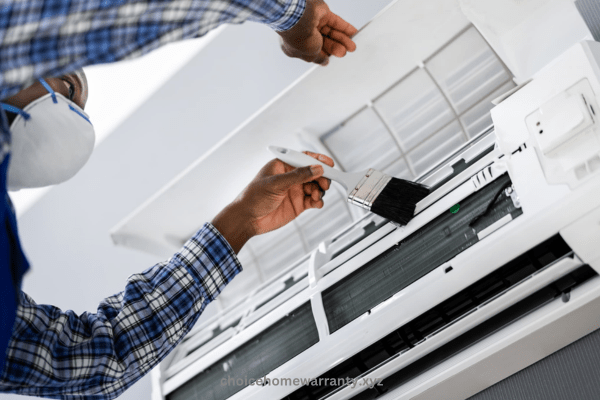There are a variety of issues that can cause air conditioner problems, and understanding the common culprits can help homeowners to troubleshoot potential issues. One frequent cause is dirty or clogged filters, which can restrict airflow and lead to reduced cooling efficiency. Additionally, low refrigerant levels can result in inadequate cooling and may indicate a leak in the system that needs to be addressed promptly.
Another common issue stems from malfunctioning thermostats, as inaccurate temperature readings or faulty controls can disrupt the air conditioning unit’s performance. Understanding the causes of air conditioner problems empowers you to take proactive measures to ensure the longevity and efficiency of your cooling system. Regular maintenance, prompt identification of issues, and knowing when to upgrade are key factors in maintaining a comfortable and cost-effective indoor environment.
Furthermore, electrical problems such as blown fuses, tripped circuit breakers, or damaged wiring can also lead to AC malfunctions. Regular maintenance and professional inspections are crucial for identifying potential causes of air conditioner problems before they escalate into larger issues. By staying vigilant and addressing these common causes proactively, homeowners can ensure their air conditioners function optimally throughout the year.
Understanding Air Conditioner Problems
Understanding air conditioner problems can be a complex task, as various factors can contribute to malfunction. One of the most common causes of issues with an air conditioner is lack of maintenance. Dust and debris accumulating in the unit can lead to clogged filters and reduced airflow, ultimately causing the system to work harder and less efficiently.
Another prevalent cause of air conditioner problems is refrigerant leaks. When there’s not enough refrigerant in the system, it can result in decreased cooling capacity and higher energy consumption. Additionally, electrical control failures can also lead to malfunctioning air conditioners. Faulty wiring or sensors can disrupt the functioning of the unit, leading to inconsistent temperatures and poor performance.
Homeowners need to recognize these potential causes of air conditioner problems so they can take proactive steps to prevent them from occurring. By scheduling regular maintenance, checking for refrigerant leaks, and ensuring proper electrical connections, individuals can help minimize potential issues with their air conditioning units.
Lack of Maintenance: Neglected AC Units Cause Issues
Neglected AC units can lead to a myriad of issues, causing discomfort and frustration for homeowners. From decreased cooling efficiency to complete breakdowns, the consequences of neglected maintenance are far-reaching. One of the most common air conditioner problems stemming from lack of maintenance is reduced airflow. As dust and debris accumulate within the unit, airflow becomes restricted, leading to poor air circulation and uneven cooling throughout the space.
Moreover, neglecting AC unit maintenance can also result in costly repairs as small issues escalate into larger, more complex problems over time. For example, a simple clogged filter can put excessive strain on the system, leading to overheating and potential compressor failure. This not only poses an inconvenience but also puts a dent in the household budget when expensive repairs or replacements become necessary. Ultimately, regular maintenance is key to keeping AC units running smoothly and effectively, providing both comfort and peace of mind for homeowners.
In addition to operational difficulties caused by neglecting maintenance for your air conditioner problems you could be inviting health hazards too; including mold growth due to moisture buildup within the system. If left unaddressed this mold can spread through your home via your HVAC system potentially causing respiratory issues among inhabitants.

Dirty Filters: Impacts of Clogged Air Filters
Dirty filters can wreak havoc on your air conditioner, leading to a myriad of problems that can significantly impact the efficiency and longevity of your unit. Clogged air filters restrict airflow, forcing the system to work harder to maintain the desired temperature. This increased workload not only leads to higher energy consumption but also puts undue stress on the components, potentially causing malfunctions and breakdowns. Moreover, dirty filters can result in poor indoor air quality as they fail to trap dust, allergens, and other particles effectively, posing health risks for occupants.
In addition to compromising performance and energy efficiency, clogged air filters can also contribute to decreased cooling capacity. When airflow is impeded by dirt and debris build-up, the overall cooling ability of the system is hindered, leading to uneven temperatures and discomfort within your living space. Furthermore, neglected dirty filters may lead to frozen evaporator coils due to reduced airflow passing over them. These issues not only create an uncomfortable environment for occupants but also add unnecessary strain on the air conditioner which could ultimately lead to costly repairs or premature replacement.
Homeowners need to understand that regular filter maintenance plays a crucial role in preventing these issues from occurring while enhancing overall indoor comfort and system performance. By proactively changing or cleaning air filters according to manufacturer recommendations, you can avoid many common air conditioner problems associated with dirty filters. Investing in high-quality filters and staying diligent with maintenance not only saves money by improving energy efficiency but also promotes healthier indoor air quality – creating a win-win scenario for both your wallet and well-being.
Refrigerant Leaks: Consequences of Low Refrigerant Levels
Refrigerant leaks can lead to a myriad of consequences, especially when it comes to low refrigerant levels in air conditioners. The most immediate issue is a noticeable reduction in cooling capacity, as the system struggles to maintain the desired indoor temperature. This not only leads to discomfort for occupants but also puts additional strain on the air conditioner, potentially causing it to overheat and malfunction.
Moreover, low refrigerant levels can significantly impact energy efficiency. When an air conditioner doesn’t have enough refrigerant, it has to work harder and consume more energy to achieve the same level of cooling. This not only results in higher utility bills but also contributes to unnecessary environmental impact due to increased energy consumption. Additionally, low refrigerant levels can cause the evaporator coil to freeze up, further hindering the system’s ability to cool the air effectively. As a result, maintaining proper refrigerant levels is crucial for both the performance and longevity of an air conditioning system.

Electrical Issues: Effects of Faulty Wiring and Components
Air conditioner problems can often be attributed to faulty wiring and components within the electrical system. When wiring is defective or outdated, it can lead to power surges or short circuits that damage the air conditioning unit. These issues can result in inconsistent cooling, increased energy consumption, and eventually complete system failure. In addition, malfunctioning electrical components such as capacitors or relays can cause the air conditioner to stop working altogether, leading to discomfort and potential health hazards due to poor indoor air quality.
Furthermore, neglecting electrical maintenance for air conditioners can pose serious safety risks. Faulty wiring and components increase the likelihood of electrical fires, posing a threat not only to property but also to human lives. Regular inspections and timely repairs are essential for preventing these dangers and maintaining a safe environment. Additionally, operational inefficiencies resulting from electrical issues may lead to higher utility bills and environmental impact due to increased energy consumption. Homeowners and business owners alike must address any suspected electrical problems promptly to avoid these potential consequences.
Sensor Problems: Malfunctioning Thermostat Sensors
Air conditioner problems often stem from malfunctioning thermostat sensors, which can disrupt the unit’s ability to regulate temperature effectively. When these sensors fail, the air conditioner may cycle on and off frequently or struggle to maintain a consistent temperature, leading to discomfort and inefficiency. This issue can also lead to increased energy usage and higher utility bills as the system overcompensates for inaccurate readings.
In addition to comfort and cost concerns, malfunctioning thermostat sensors can cause unnecessary wear and tear on the air conditioning system, potentially shortening its lifespan. Furthermore, inconsistent temperatures resulting from sensor problems can create an uncomfortable indoor environment during extreme weather conditions. Homeowners must address these sensor issues promptly to avoid long-term damage or reduced performance of their air conditioning unit. Regular maintenance and professional inspections are essential in preventing such complications related to sensor malfunctions, ensuring that your air conditioner operates smoothly and efficiently throughout its lifespan.
Conclusion
Air conditioner problems can stem from a variety of causes, including lack of maintenance, clogged filters, refrigerant leaks, electrical issues, and improper installation. Identifying these root causes is crucial in preventing future malfunctions and ensuring the longevity of your cooling system. Regular maintenance and prompt repairs are essential in addressing these problems and maintaining optimal performance. By staying vigilant and addressing issues proactively, homeowners can avoid costly repairs, reduce energy consumption, and enjoy a comfortable indoor environment. Homeowners must schedule regular maintenance checks and promptly address any emerging issues to ensure their air conditioning systems operate efficiently.

Frequently Asked Questions About Air Conditioner Problems
How often should I service my air conditioner?
Regular servicing is recommended at least once a year, ideally before the summer season.
Are DIY repairs safe for air conditioners?
While some minor troubleshooting is safe, it’s best to leave complex repairs to professional technicians to avoid further damage.
What are the signs of a refrigerant leak in an air conditioner?
Look out for reduced cooling efficiency, hissing sounds, and ice buildup on the evaporator coil.
Is it necessary to replace the thermostat if it’s not working accurately?
In some cases, recalibrating the thermostat may suffice, but if issues persist, replacing it is advisable.
How can I ensure my air conditioner is eco-friendly?
Regular maintenance, using energy-efficient models, and practicing responsible usage contribute to eco-friendly air conditioning.
